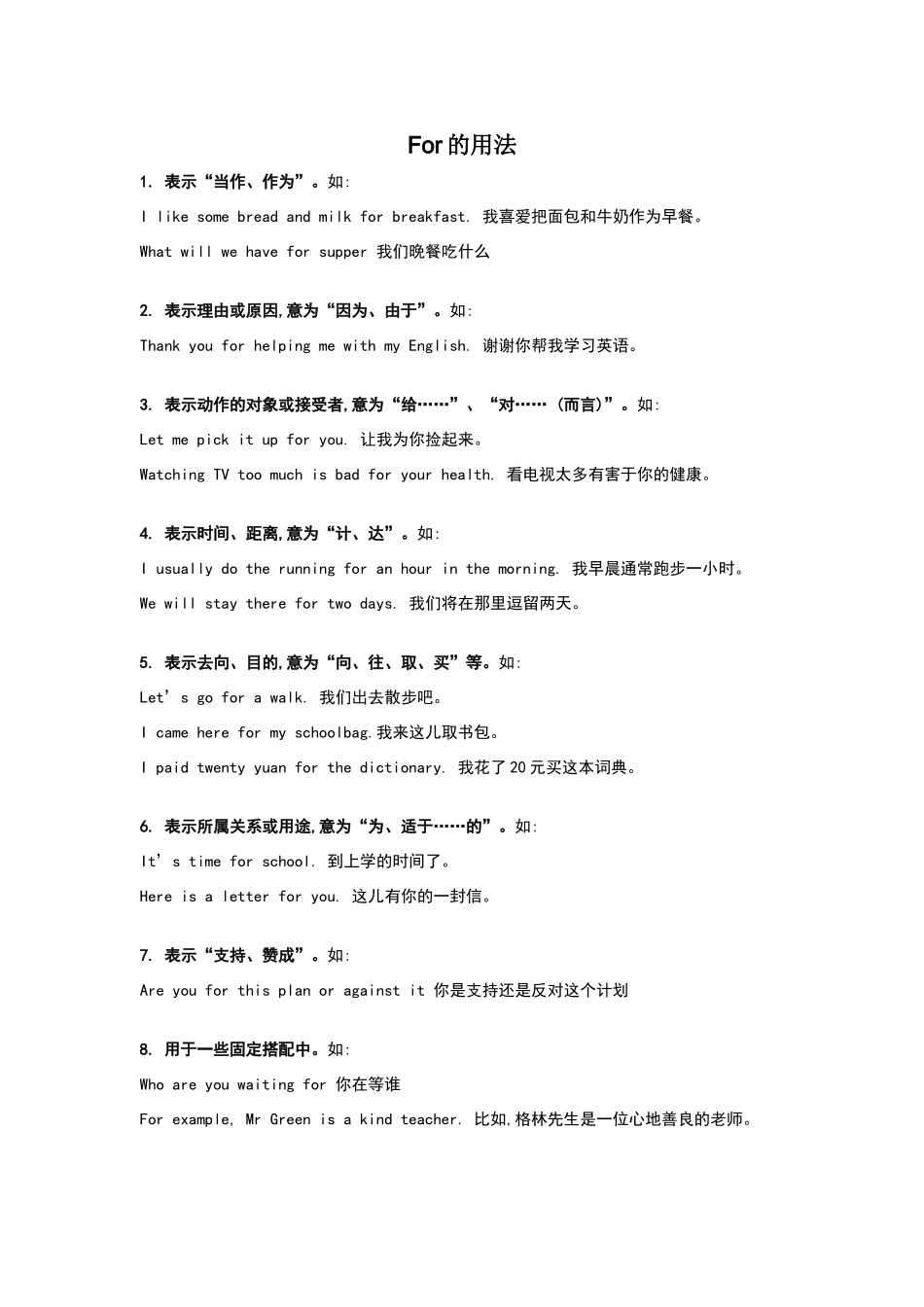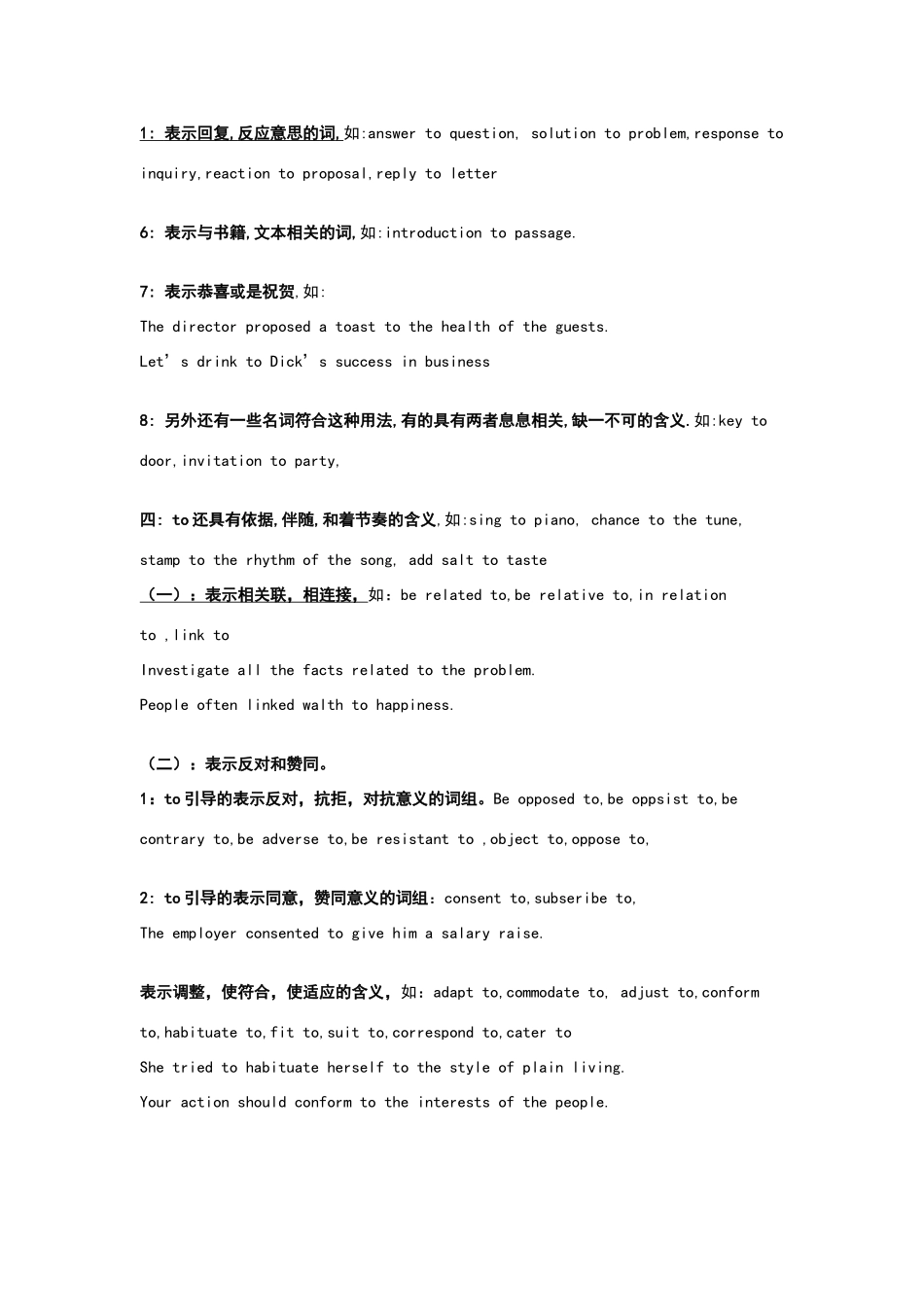For 的用法1. 表示“当作、作为”。如: I like some bread and milk for breakfast. 我喜爱把面包和牛奶作为早餐。 What will we have for supper 我们晚餐吃什么 2. 表示理由或原因,意为“因为、由于”。如: Thank you for helping me with my English. 谢谢你帮我学习英语。 3. 表示动作的对象或接受者,意为“给……”、“对…… (而言)”。如: Let me pick it up for you. 让我为你捡起来。 Watching TV too much is bad for your health. 看电视太多有害于你的健康。 4. 表示时间、距离,意为“计、达”。如: I usually do the running for an hour in the morning. 我早晨通常跑步一小时。 We will stay there for two days. 我们将在那里逗留两天。 5. 表示去向、目的,意为“向、往、取、买”等。如: Let’s go for a walk. 我们出去散步吧。 I came here for my schoolbag.我来这儿取书包。 I paid twenty yuan for the dictionary. 我花了 20 元买这本词典。 6. 表示所属关系或用途,意为“为、适于……的”。如: It’s time for school. 到上学的时间了。 Here is a letter for you. 这儿有你的一封信。 7. 表示“支持、赞成”。如: Are you for this plan or against it 你是支持还是反对这个计划 8. 用于一些固定搭配中。如: Who are you waiting for 你在等谁 For example, Mr Green is a kind teacher. 比如,格林先生是一位心地善良的老师。to 的用法:一:表示相对,针对 be strange (common, new, familiar, peculiar) to This injection will make you immune to infection. 二:表示对比,比较 1:以-ior 结尾的形容词,后接介词 to 表示比较,如:superior ,inferior,prior,senior,junior 2: 一些本身就含有比较或比拟意思的形容词,如equal,similar,equivalent,analogous A is similar to B in many ways. 3:表示一些先后顺序的形容词,如:second、next, 4: to 也间或出现在个别动词之后,与动词形成固定词组,表示比较,如:prefer to,compare to,in contrast to compare to sth.表示比方或比拟,而 compare with sth.表示比较,如: World is usually compared to a stage Compared with his past,he has changed a l...


